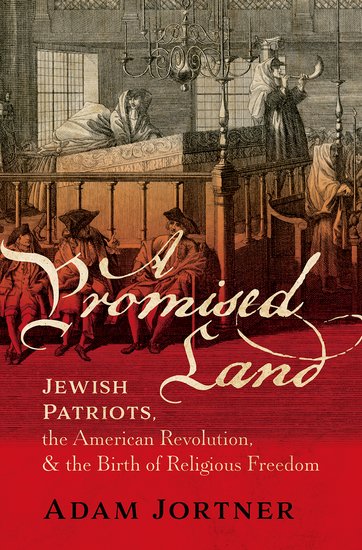Dusting off the old stories, grounding them in better evidence, and adding a great many new ones, Jortner’s book makes the provocative and largely convincing argument that Jews in the early United States, though few in number (there were no more than three thousand across the thirteen colonies), were among both the most eager participants and the prime beneficiaries of the American Revolution.
Though hard numbers are impossible to come by, Jortner contends that most Jews in the colonies had more to gain than lose in joining the incipient rebellion against the Crown. Although royal officials demanded pledges of faith in Christianity from voters and officeholders, the ranks of the Patriot forces were open to colonists of any religion. Jews benefited from the social upheaval of the period, which allowed common people to have a say in public affairs for the first time. “As the patriots took control,” Jortner writes, “those who had been on the outside were now holding the reins of power.” In Savannah, Georgia, Mordecai Sheftall ran the ad hoc revolutionary committee that ended up serving as a provisional government. The royal governor of Georgia dismissed the rebels in his province as “a Parcel of the Lowest People, chiefly Carpenters, Shoemakers, Blacksmiths, etc. with a Jew at their head.”
Jews immediately recognized how good they had it in the United States under the new regime. When the Constitution was ratified in 1788, Richmond’s Jewish community held a banquet to celebrate the occasion. As one of the toasts put it, “May the Israelites throughout the world enjoy the same religious rights and political advantages as their American brethren.” At the grand procession in Philadelphia that summer to cheer the ratification of the new document, Jacob Raphael Cohen, the unofficial rabbi of the city’s Mikveh Israel congregation, marched arm in arm with other clergymen, and a feast at the end of the parade included a table of kosher food. Non-Jewish supporters of the Constitution in New York pushed their own celebration back by a day so as not to conflict with Tisha b’Av.
It is not the case, however, that all American Jews immediately backed the Revolution, were fully welcomed into its ranks, and applied its principles of equality from which they themselves benefited to others. Rather than sweep less pleasant aspects of his story under the rug, Jortner goes out of his way to address such inconvenient truths and fold them into his larger narrative.
